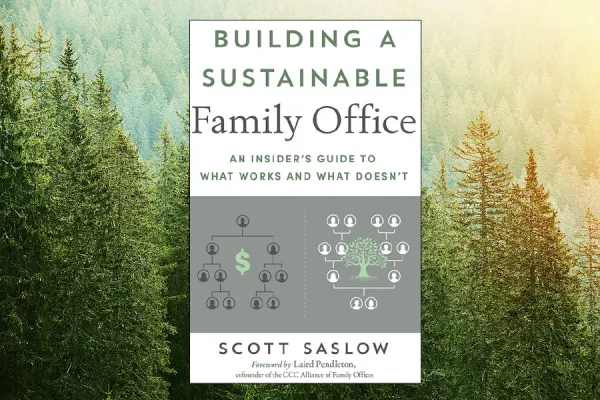
Illustration by II
When Jehoshaphat Research posted a voluminous critique of Techtronic Industries, a multibillion-dollar multinational company whose shares are listed in Hong Kong, the little-known short-seller wasn’t prepared for what came next.
More than 30,000 people viewed Jehoshaphat’s tweets linking to the 60 pages of research, which went live a half-hour before the Hong Kong stock exchange opened on February 23. By the end of the day, the stock had fallen 20 percent and about $3.5 billion had been wiped off the market cap of Techtronic, a power tools company whose consumer products include such well-known brands as Ryobi, Hoover, Oreck, and Dirt Devil. Soon Bloomberg was calling Jehoshaphat “mysterious,” and Techtronic was denying the allegations in the report. It quickly put out two detailed responses to Jehoshaphat’s arguments, and threatened to sue — which it eventually did.
So just who is this enigmatic character using a biblical pseudonym? At first glance, it would appear that Jehoshaphat is something of a newbie in the world of short-selling. Jehoshaphat has published short activist research only since 2021, with an average track record of 15.8 percent gains for the stocks of 12 different companies, according to Breakout Point, which tracks activist short-sellers. (The stocks fell by that amount since the reports were published, while the broader market gained about 14 percent.)
But the person behind Jehoshaphat is no newcomer. A graduate of the Wharton School at the University of Pennsylvania, he has a 15-year record of short-selling at several firms, including hedge funds Diamondback Capital, Lawton Park Capital Management, and Carlson Capital, and then AllianceBernstein. He left AllianceBernstein’s New York City offices during the early days of the Covid pandemic to work remotely from his hometown of Tampa, Florida. In 2021, he departed from the firm to form his own hedge fund, Carrollwood Capital Management, named after the neighborhood where he grew up.
His name is Victor Bonilla.
The move is a big change for a person who came from the hedge fund world, where, he says, “you don’t go out and talk.”
For many years, Bonilla had posted his short research on a site called SumZero. Over seven years, he says, he published 12 short ideas there, and all but one of the stocks significantly underperformed the market. The average alpha per idea was more than 30 percent, leading Bonilla to be ranked the site’s No. 1 all-time short-seller in May 2016. Only SumZero subscribers knew the name of the man behind the reports. One who did was a portfolio manager at Carlson Capital, who liked his work and hired Bonilla on one condition: No more going public with his research.
Two years later, Bonilla was hired away from Carlson to run a $300 million book at a hedge fund inside AllianceBernstein, where he also shorted stocks behind the scenes. “Working for hedge funds, you sort of toil in anonymity, but you get paid money to do it,” Bonilla says. “You short these companies and you may think really bad things about them, but you’re not out there saying it.”
That drove him nuts. “It was like watching a ship move toward an iceberg. And I’m yelling at the screen on my computer and saying, like, ‘Look, there it is! There’s the iceberg!’”
After leaving AllianceBernstein and starting his own hedge fund, Bonilla was back to posting short research for the world to see — but anonymously. Until he had some wins under his belt, he says, he was reluctant to tell the world who he was. “Once you go public, you can’t unring that bell. I’ve been hemming and hawing about this for a long time.”
Activist short-sellers who remain anonymous typically do so for fear of harassment of themselves and their families, from either their targeted companies or investors who lost money when the stocks of those companies declined in value. They also worry about fending off costly lawsuits.
Most of Bonilla’s activist short-seller peers aren’t anonymous, and they encouraged Bonilla to use his real name. “I think going anonymous is a bad idea,” says Gabriel Grego, who has known him for years and is the founder of activist short-selling hedge fund Quintessential Capital. “People will take you much more seriously if you say who you really are.”
Grego explains that the playing field has changed in recent years — to the detriment of pseudonymous short-sellers. Companies are no longer shy about suing short-sellers and outing those who hide behind fake names. In the past, Grego says, judges often refused requests from companies to force disclosure of the identity of an anonymous short-seller. But companies have gone on the offensive, and some courts have required short-sellers to reveal their identities.
A famous case in point involves a defamation lawsuit brought by real estate investment trust Farmland Partners against pseudonymous short-seller Rota Fortunae. The judge in that case forced the short-seller behind the name, David Quinton Mathews, to reveal his identity. And though most lawsuits against short-sellers have gone nowhere, in this case Mathews ended up admitting having made false and inaccurate statements and having profited from put options after his Farmland report came out.
Farmland’s victory was such a coup for those subject to short-seller attacks that the company’s attorneys at Quinn Emanuel Urquhart & Sullivan put out a blog post about it, saying the case proved that suits against short-sellers could be won. There do not appear to have been any big victories since then, but Quinn Emanuel is using its success for Farmland to position itself as the go-to law firm for companies wanting to take on short-sellers.
It may come as no surprise to learn that Quinn Emanuel is now representing Techtronic — and also managed to figure out the identity of the person behind Jehoshaphat.
Techtronic’s lawsuit — which has not been reported on before now — claims that Jehoshaphat’s research was “lengthy, detailed, and utterly false.” (Spiro declined to comment, as did a spokesperson for Techtronic.)
“On February 22, 2023, defendants falsely claimed that [Techtronic] was using a ‘web of deceit’ and ‘manipulative accounting’ to inflate their revenue and hide expenses,” the lawsuit states. It argues that these claims were “knowingly false” and that the company’s “financial records are properly maintained in accordance with all industry standards and accurately reflect the company’s assets, liabilities, revenue, and expenses.”
The suit also notes that Jehoshaphat put out another report on Techtronic on June 5 claiming that the company was “systematically defrauding Home Depot . . . by falsely labeling hundreds of millions of dollars’ worth of products as ‘blemished’ so that it could sell them through its own network of factory outlets.” Techtronic says that is also untrue.
On August 29, Bonilla filed a motion to dismiss the lawsuit. In the motion, his attorneys from the Harder LLP law firm write that the “two written reports by Bonilla containing lively hyperbole and opinions about Techtronic’s finances” are protected by the First Amendment. “This is a classic SLAPP [strategic lawsuit against public participation] suit — an attempt by a large, famous, publicly traded corporation, with a market capitalization of twenty billion dollars, to silence a critic.”
The motion continues, “Bonilla’s claims are backed up by over 130 pages of careful analysis, financial calculations, illustrations, and photographs. Techtronic denies none of these facts at any level of detail.”
One of the reasons Bonilla says he started looking at Techtronic was its remarkable job of increasing its gross margins year after year. Companies’ margins typically go up and down over time, which made Bonilla take a closer look. He says he found “a lot of weird stuff going on.”
In the introduction to the Jehoshaphat report, Bonilla writes that “a broad ‘toolbox’ of accounting games has enabled [Techtronic] to engineer a profit margin trendline so perfect, it does not otherwise exist on Earth. Of every single public company with over $1 [billion] revenue in the entire world, [Techtronic] is the only one whose gross margin has gone up every half-year, sequentially, for ten years straight.”
The report argues that Techtronic stuffed “billions of dollars’ worth of routine expenses into various asset accounts year after year. As a result of this frontal assault on economic reality, [Techtronic’s] balance sheet has become a vast, toxic graveyard where the accounting bodies get buried.”
In the report, Bonilla mentions several things he found suspicious, including Techtronic’s “snowballing costs in capitalized intangible assets which must be written off later” and “overproducing inventory which raises gross margin and pushes costs until later.”
Techtronic says in its lawsuit that its “decade of increasing gross margins is entirely accurate and is a result of [its] strategic plan, growth, and innovation” and that the company “depreciates its capital assets in accordance with accepted accounting standards.”
As Bonilla puts it to II, “Investors in Techtronic really care a lot about gross margin, and they love the fact that this margin just never went down. It just kept going up." But, he says, “as a short-seller, I’m looking at that and I’m asking questions about why. Let’s take these things apart. What is the thing everybody loves and cares about? And that kind of goes back to just how I look at the world.”
Techtronic’s stock price has been volatile since Jehoshaphat’s report in February. The stock recovered some of its losses early on, but its price is now near the level it reached after plunging based on the report.
Other short-sellers applaud Bonilla’s work. “He’s a great fundamental analyst,” says Soren Aandahl, the founder of Blue Orca Capital, another activist short-seller. “He’s particularly adept at unpacking the accounting issues.”
Bonilla’s accounting-based research may be difficult for the broad investing public to understand. Talking about gross margins isn’t as sexy as showing a video of a truck rolling down a hill, to cite the example that made the short against Nikola Motor such an initial success.
And proving malfeasance can be complicated. “Accounting is very subjective, and there can be gray areas,” Bonilla allows.
But the institutional investors he is used to speaking to understand such accounting issues, he says. “You have to speak a different language to speak to the investors that invest in those companies,” Bonilla explains. “And you also have to use a different lens when you’re analyzing those companies.”
Still, accounting-based shorts were not as popular in recent years when money was free and investors cared less about profits than growth. But Aandahl argues that the type of accounting shorts Bonilla focuses on “are going to be coming into their own” as companies have to grapple with high interest rates for an extended period. “Companies will play accounting games to mask their true leverage,” Aandahl predicts.
“I am still at the point where I am being polite,” Bonilla says, explaining his refusal to offer more details about the visit.
There were other considerations for coming out of the shadows. When he first launched the pseudonymous research firm, “it was kind of an experiment,” Bonilla says. He and his partner, Mitchell Schwartz — a Harvard MBA who previously worked at Citadel — were building a hedge fund business, and as the reports became successful, they knew the exposure could be helpful to that effort. (Carrollwood has about $52 million in assets under management. Its investors include family offices, funds of funds, and friends and family, according to Bonilla.)
“Being anonymous doesn’t make a ton of sense,” says Bonilla. “Now we’ve got a team; we’ve got a hedge fund. Being anonymous is getting to the point where it’s silly.”
The truth is, there’s really nowhere to hide. “When the going gets tough, you’re going to be exposed,” says Grego. And, he warns, “It looks worse in court if you try to be anonymous.”
Adds the fellow short-seller: “You may as well reap the fruits of transparency.”






